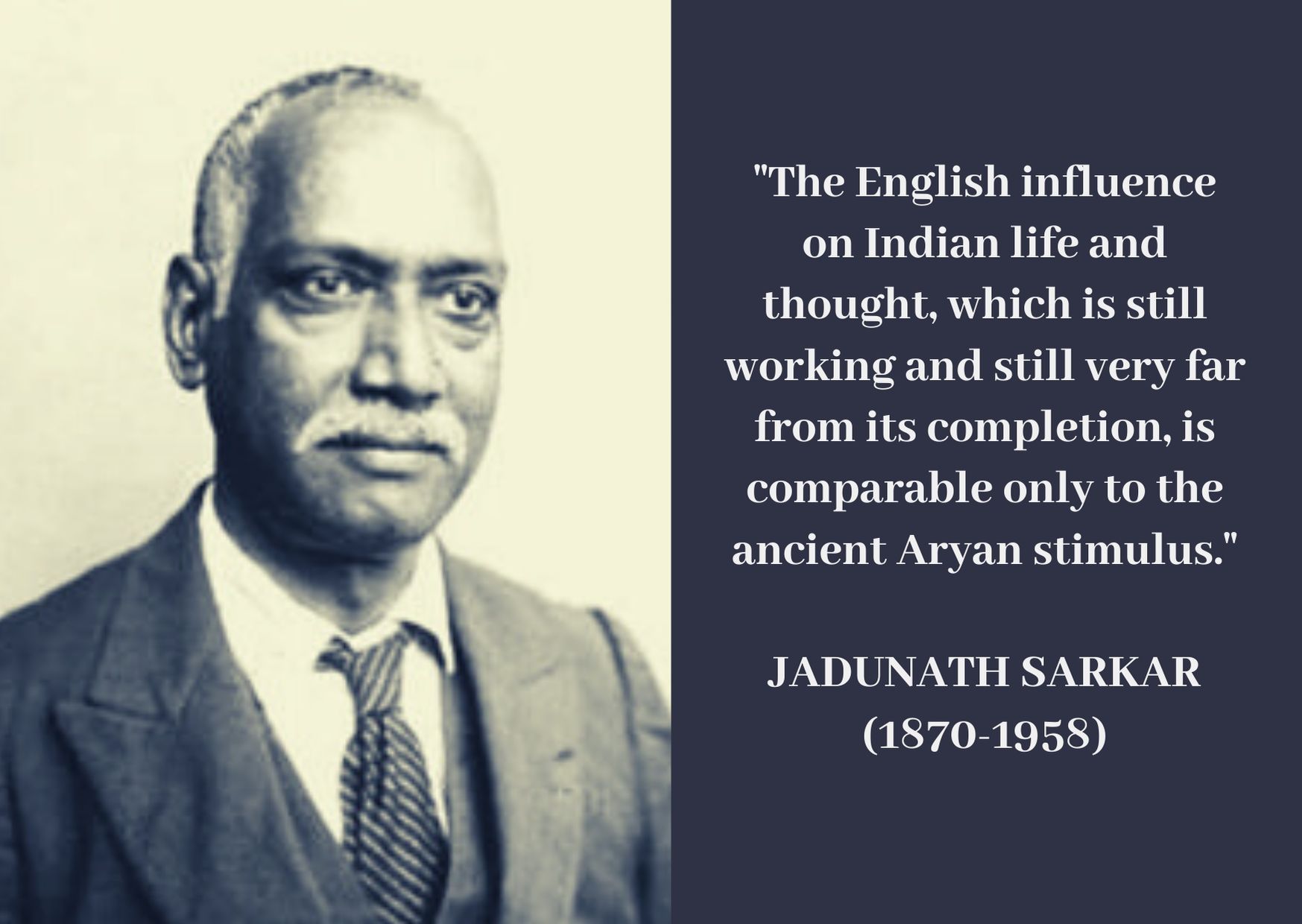This year will be the 150th birth anniversary of the historian Jadunath Sarkar. He is now a forgotten figure but there was a time in the not-so-distant past when, as Dipesh Chakrabarty has noted in the best book on him (The Calling of History: Sir Jadunath and his Empire of Truth, Permanent Black & Ashoka University, 2015), ``Jadunath Sarkar was once a name every educated Indian knew...he was easily the most highly regarded Indian historian.’’
Jadunath Sarkar was very much the product of his times. In many ways, born and educated as he was in the closing decades of the 19th century, he was perhaps the last representative of a long intellectual line that began with Rammohun Roy, in the early 19th century, hailing British rule as a gift of Divine Providence that ended many years of ``Muslim tyranny’’. Sarkar echoed this in redolent prose when in the last section of the second and concluding volume of the History of Bengal (Dacca University, 1948) --- a volume that he edited --- he described the coming of British rule as ``the beginning...of a glorious dawn, the like of which the history of the world has not seen anywhere.’’ British rule, Sarkar went on to say, engendered a Renaissance ``wider, deeper, and more revolutionary than that of Europe after the fall of Constantinople.’’ For Sarkar British rule was deliverance for India which had been languishing under Muslim rule.
This attitude to British rule was one of Sarkar’s lifelong commitments. Twenty years before he wrote those lines in the History of Bengal, he had observed: ``The English influence on Indian life and thought, which is still working and still very far from its completion, is comparable only to the ancient Aryan stimulus. The first gift of the English to India is universal peace, or freedom from foreign invasion and internal disorder...The indirect examples of the English people have infused a spirit of progress into the Indians. Our best thinkers are no longer content with adoring the wisdom of our Vedic ancestors; they feel an eternal discontent with things as they are. Our most effective leaders do not repeat the pessimism of pre-British days by despising the modern as a race of degenerate pygmies and sighing for the return of the golden age of the far-off past (Satya Yuga). Their gaze is fixed forward.’’ The leaders who were effective were those that saw British rule as the heralds of progress.
As a keen student of literature, Sarkar was drawn to Aurangzeb’s reign because it contained elements of a profound and dramatic tragedy --- a highly competent and virtuous individual hurtling towards the destruction of the empire whose frontiers he had extended deep into the Deccan and across North India. Again, because he was a lover of literature, the notion of telling a story within a given chronological framework appealed to Sarkar. His history of Aurangzeb and indeed all his other major books are embedded in very cogent and lucid narratives. Narrative history was Jadunath Sarkar’s forte.
He located Aurangzeb’s tragedy within a conflict between human agency and destiny. He wrote in the opening of the fifth and final volume of his history of Aurangzeb, ``The life of Aurangzeb was one long tragedy --- a story of a man battling in vain an invisible and inexorable fate, a tale of how the strongest human endeavour was baffled by the forces of the age.’’ Sarkar never quite clarified what these ``forces of the age’’ were --- which by definition were impersonal and transcending human agency. Instead, in analytical terms, he related the downfall to Aurangzeb’s religious policy which sprang, Sarkar believed, from the emperor’s inflexible religious beliefs. ``The orthodox Aurangzeb’’ (as Sarkar labelled him) deviated from the policies of his predecessors --- the ``liberal Akbar, the self-indulgent Jahangir and the cultured Shah Jahan’’ (again all Sarkar’s epithets) --- and followed a policy of discrimination and persecution against Hindus, thus alienating large sections of his subjects who declared war against the Mughal Empire. Having spoken of `` forces of the age’’, Sarkar did not use them in his analysis. He fell back on the individual --- his failings and his beliefs.
This explanatory framework was used by Sarkar in his other multi-volume work Fall of the Mughal Empire – an extension and completion of the British historian William Irvine’s Later Mughals. The Mughal Empire in its prime had in Sarkar’s words, ``united many provinces of India into one political unit, with uniformity of official language, administrative machinery, coinage and public service and indeed a common type of civilization for the higher classes. They [the Mughal emperors] also recognized it as a duty to preserve peace and the reign of law through their dominions.’’ Sarkar saw these as ``...the first step necessary for the modernization of India and the growth of an Indian nationality in some distant future.’’ All this was, however, destroyed by a series of incompetent and stupid rulers who lacked the ability and the will to rule, and to undo some of the consequences that had followed from Aurangzeb’s orthodox religious policies.
Sarkar’s legacy as a historian has many different kinds of claimants and not all of them are too well read in his writings. Most commonly, he is seen as the author of a crude ``bad king Aurangzeb’’ theory of Mughal decline. He was, as we have seen above, no denigrator of Aurangzeb; in fact he saw the emperor as a wise and hard-working ruler with character. Because he admired Shivaji, Hindu nationalists have claimed him. Sarkar was no nationalist. He wrote in 1951, ``The true scholar is a national of the Republic of Letters which transcends the narrow bounds of provinces, countries and languages, and places its student at the bar of the court of scholarship. Let recognition by that court be the secret ambition of every one of our research workers. National chauvinism does not go very far --- and even where it goes it only acts as a delusive will-o’-the-wisp.’’ (italics mine)
The muse of Clio has moved on since Sarkar wrote history. No serious historian today believes that historians can ever present the past as it actually was and arrive at the Truth. Historians have also moved to analysing the impersonal forces of the age and how these shape the lives of individuals and how they configure societies. At the same time, no historian questions the importance of facts as the bedrock of history writing. In recognition of the importance of facts, historians today tend to look at the making of facts and of the documents from which the facts emerge. Historians have moved on from Sarkar but they have also learnt from his tireless and path-breaking practise of the historian’s craft. It is not difficult to imagine that Sarkar, sitting as he now is at the ``bar of the court of scholarship’’ is enjoying the work and the plight of historians today.
(The writer is chancellor and professor of history Ashoka University)
The last years of the 19th century also witnessed the rise of nationalism and the critique of many aspects --- especially the economic --- of British rule in India. Sarkar was not influenced by these ideas and chose to ignore them. He had no sympathy for the Indian national movement and its leaders, including Gandhi. On the latter, in 1940 he wrote in a private letter to his friend and fellow-historian, G.S.Sardesai,: ``I am sick of this cat and mouse game which the blind Congress is trying to play with Pax Britannica under the `whip’ of a demented Gujarati bania’s son, who believes himself buwa or avatar.’’ In the aftermath of the Swadeshi Movement in Bengal, Sarkar wrote Economics of British India. In it he makes his view that British rule had been beneficial for the Indian economy. It is hardly conceivable that as erudite a person as Sarkar had not read the works of R.C.Dutt and Dadabhai Naoroji, which provided detailed expositions of the exploitative nature of British rule and its links with the poverty of India. Sarkar chose to ignore the analysis of these writers and the entire body of writing associated with economic nationalism.
He had studied History as an undergraduate at Presidency College but chose to pursue English for his MA. He subsequently taught both subjects but, though his writing of history was invariably informed by his study of literature, it is as a historian that Sarkar came to be primarily known. This became evident in the writing of his next project --- a multi-volume account of the reign of Aurangzeb --- a book which shot him into fame and is the work for which he is most remembered.
In spite of his admiration for the British Empire, Sarkar had decided that his work as a historian would focus on India’s pre-British past. This is evident from the fact that he taught himself Persian and Marathi. Nonetheless his choice of Aurangzeb as the subject of what became his magnum opus is not without some significance. Individuals were important to Sarkar since he believed, as Chakrabarty points out in his book, that individuals with character were -- as agents of destiny or of divine providence --- the makers of history. Aurangzeb, for Sarkar, was one such individual bestowed with the all-important gift of character. Aurangzeb, Sarkar wrote in the beginning of the first volume, ``...was free from vice, stupidity or sloth. His intellectual keenness was proverbial...he took to the business of governing with all the ardour which men usually display in the pursuit of pleasure...His patience and perseverance were as remarkable as his love for discipline and order. In private life he was simple and abstemious like a hermit. He faced the privations of a campaign or a forced march as uncomplainingly as the most seasoned private...Of the wisdom of the ancients, which can be gathered from ethical books, he was a master.’’ These qualities notwithstanding Aurangzeb’s life was a tragedy for though in his life time Mughal rule extended over nearly the entire subcontinent, in the immediate aftermath of his death that empire disintegrated.
Sarkar pursued his theme of character in his study of Shivaji who had fused a ``tribe’’ --- the Marathas --- ``into a nation’’. Shivaji had created a ``National state’’ in spite of the presence in that era of ``hindrances to true nationality’’ like attachment to one’s own watan (territory or piece of land), caste, ``the impassable chasm between Hindus and Muslims’’, and so on. Sarkar was an admirer of Shivaji. He acknowledged, however, that many decades before Shivaji, another ruler had converted ``a military monarchy into a national state.’’ This was Akbar. But Sarkar chose not to write about Akbar. This choice is a bit of an enigma. He wrote about what he thought was a nation state which was the creation of a Hindu ruler but not about a nation state that was the creation of a Muslim ruler. Was there a prejudice hidden in this choice?
Sarkar was an unashamed apologist of the British Empire --- long before he was made a knight of that Empire and came to be known as Sir Jadunath. His encomium to the Empire was the flip side of his belief in the idea of Muslim tyranny. The overthrow of the latter justified the inauguration of the British Empire as a ``glorious dawn’’. Ideally he should have written a history of British rule in India whereas, perhaps ironically, he became a pioneering historian of Mughal rule in India.
Sarkar’s commitment to history writing as a flowing narrative was derived from the historical scholarship that prevailed in Europe when he was a student and then a scholar. History was a description of events about the past. That description had to be based on facts that had firm documentary provenance. The great historian of this tradition, Leopold von Ranke, was of the view that it was the historian’s responsibility to show on the basis of facts how the past actually was. Historians had to be committed to facts, to documents and to expressing the Truth about the past. Sarkar was unrelenting in his pursuit of facts and Truth. This he saw as his moral responsibility. He was thus also a pioneer in the preservation of records and documents and the building up of archives.
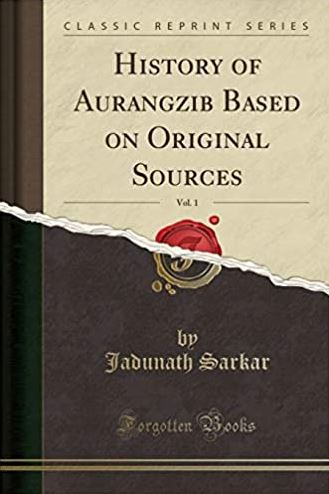
The multi-volume History of Aurangzib by Sir Jadunath Sarkar Amazon
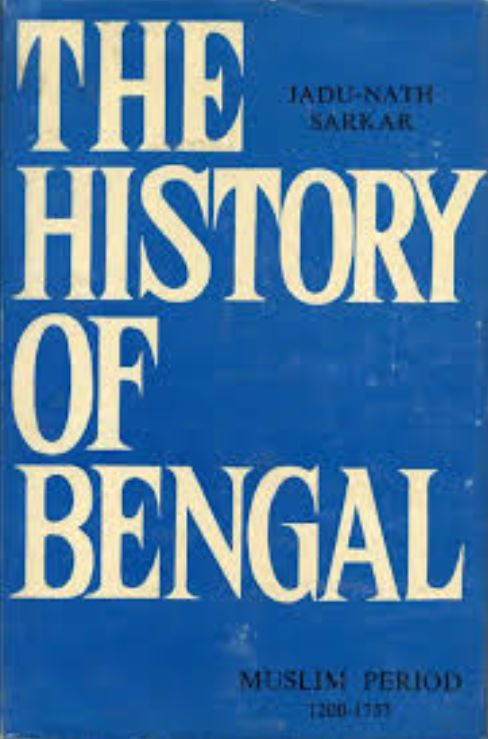
The History of Bengal by Sir Jadunath Sarkar Amazon
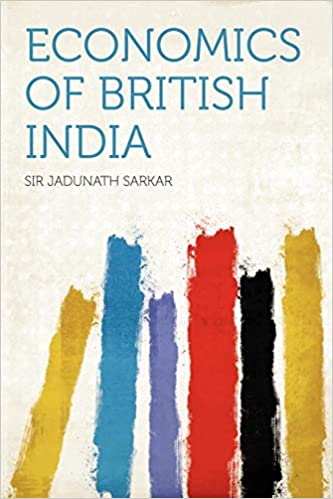
Economics of British in India by Sir Jadunath Sarkar Amazon
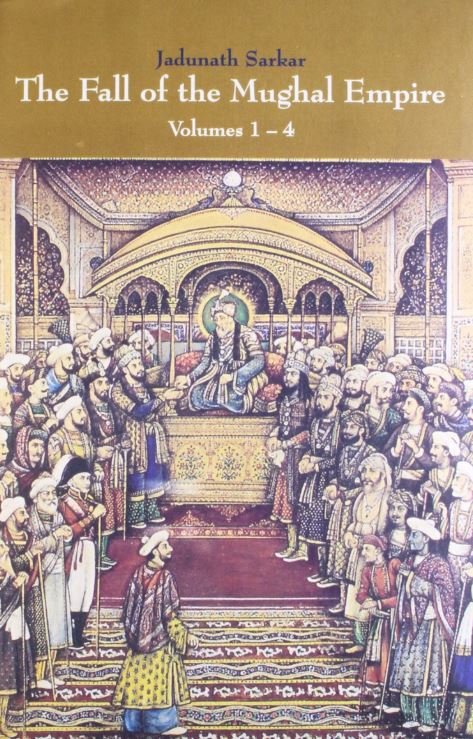
The multi-volume The Fall of the Mughal Empire by Sir Jadunath Sarkar Amazon

